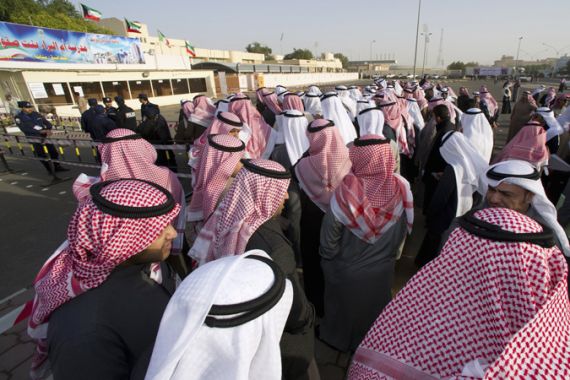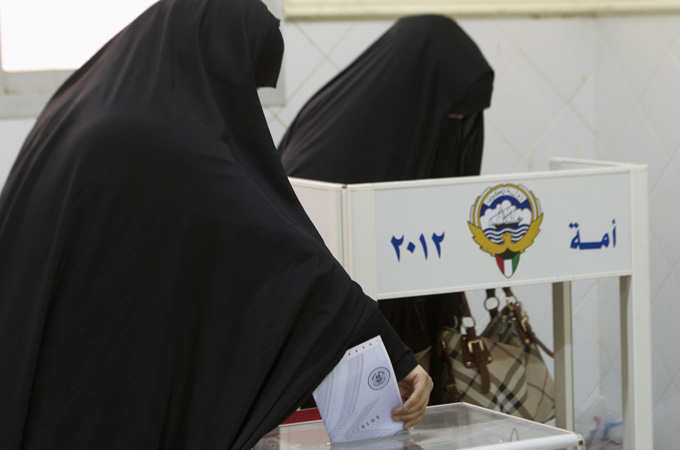Kuwaitis vote to choose new government
Opposition expected to fare well in snap parliamentary polls aimed at ending damaging political disputes.

 |
| The elections became inevitable after the ruler dissolved parliament and called for elections in December [Reuters] |
Kuwaitis have voted in a snap election for their fourth parliament in less than six years, with the Islamist-led opposition heavily favouried to win.
Thursday’s vote, which followed an especially tense campaign marred by violence, was aimed at ending political disputes that have plagued the wealthy Gulf state for years.
Female voters make up 54 per cent of the electorate, and 23 women are among 286 candidates standing for the 50-seat legislative body.
The elections were called by the country’s ruler, Sheikh Sabah al-Ahmad al-Sabah, in December after he dissolved the chamber in response to a political deadlock that had blocked reforms and held up vital development projects.
Frustration has been growing at the impasse which came to a head in November when protesters led by opposition MPs stormed the assembly demanding the resignation of the then-prime minister, Sheikh Nasser al-Mohammed al-Sabah, accusing him of corruption.
A total 287 candidates are competing for 50-member parliament, and analysts expect a victory for the Islamist-led opposition.
“The situation cannot remain as it was,” Faisel al-Mislem, an opposition candidate, told hundreds of supporters at a
campaign event in the run-up to the election. “If this election is just a game of musical chairs then it’s a waste of time.”
Regional exception
Kuwait’s parliament is fully elected, with legislative powers, unique in a region ruled by absolute monarchs who tolerate little dissent.
However, formal political parties are not allowed, which means opposition politicians are forced to rely on forming blocs in parliament.
That has undermined the ability of parliamentarians to mount effective opposition with clear programmes.
Tempers have flared before the vote. Tribesmen torched the tent of a candidate who appeared to insult their tribe and skirmished with police outside the office of a satellite channel that was hosting his ally.
Other candidates have been coaxing voters into their tents with lavish buffets and pledges ranging from lifting a ban on
the sale of alcohol to bringing laws into line with Islam.
Youth groups armed with smart phones and access to social networks have been organising their own campaigns.
Opposition players accuse the government of misdeeds and corruption ranging from bribery, turning a blind eye to diesel smuggling and fomenting divisions within parliament.
Although parliament has the power to initiate legislation, cabinet members also vote, giving the government a bloc it can use to dilute opposition or swing a majority in the assembly.
And crucially, reforms depend on the will of the al-Sabah family which has ruled Kuwait since the 18th century.